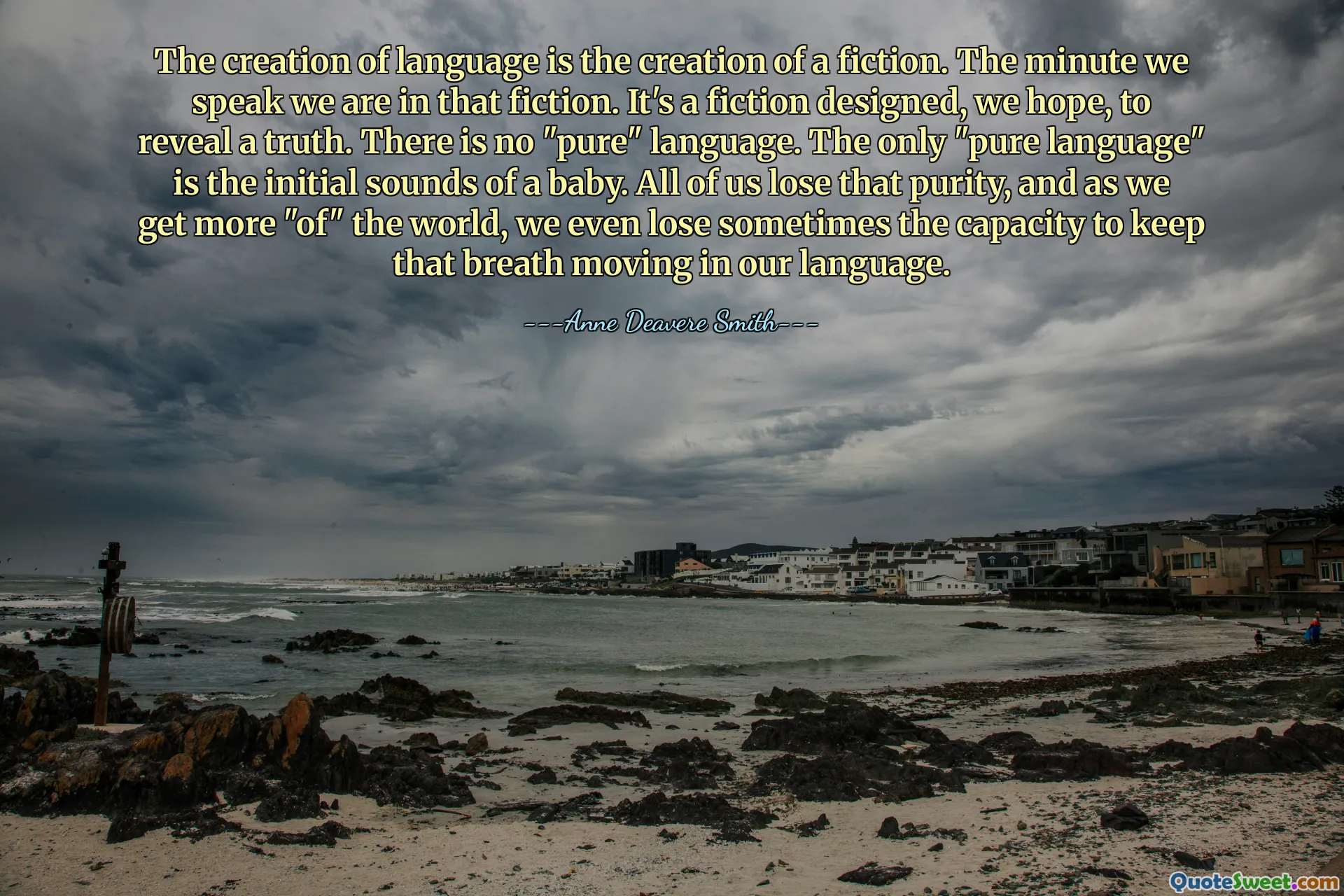
The creation of language is the creation of a fiction. The minute we speak we are in that fiction. It's a fiction designed, we hope, to reveal a truth. There is no "pure" language. The only "pure language" is the initial sounds of a baby. All of us lose that purity, and as we get more "of" the world, we even lose sometimes the capacity to keep that breath moving in our language.
This quote prompts a profound reflection on the nature of language and human communication. Language, as described here, is fundamentally a constructed fiction—a bridge between our internal experiences and the external world that inherently involves interpretation and approximation. The analogy that the "first sounds of a baby" represent pure language highlights a state of primal authenticity, free from the complexities and distortions introduced as language develops and society influences speech. As humans learn and acquire more words and concepts, they inevitably lose some degree of that original purity, implying that our attempts to describe reality are inherently imperfect. This recognition encourages humility about our linguistic expressions, understanding that every word we choose is a compromise, a mediated version of our inner truth. The statement also emphasizes that language is purposefully designed to reveal truths, but it cannot entirely encapsulate the full depth of reality, partly because of its inherent fictionality. It invites us to consider the limitations and beauty of language as a tool—an imperfect but vital instrument that shapes our perception, relationships, and understanding of the world. Ultimately, it suggests that in preserving a sense of authenticity and mindfulness about the origins of our words, we might better grasp the nuances of truth that language seeks to communicate, acknowledging its creative and imperfect nature at every step.











